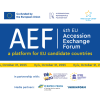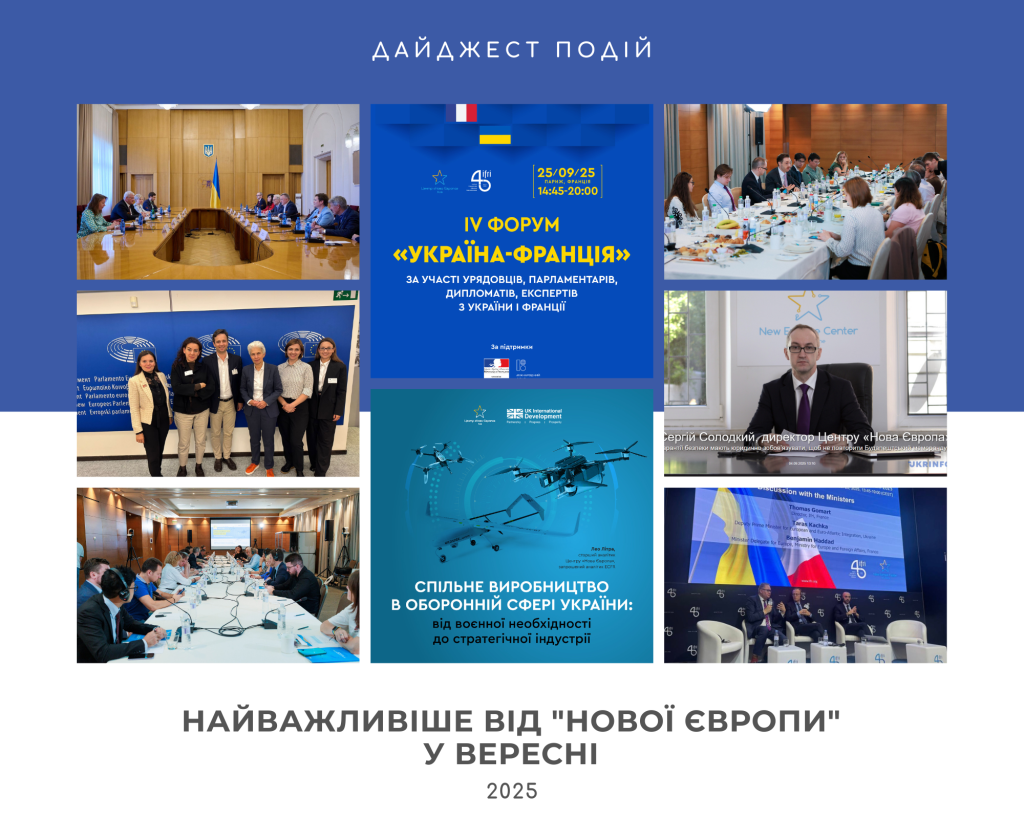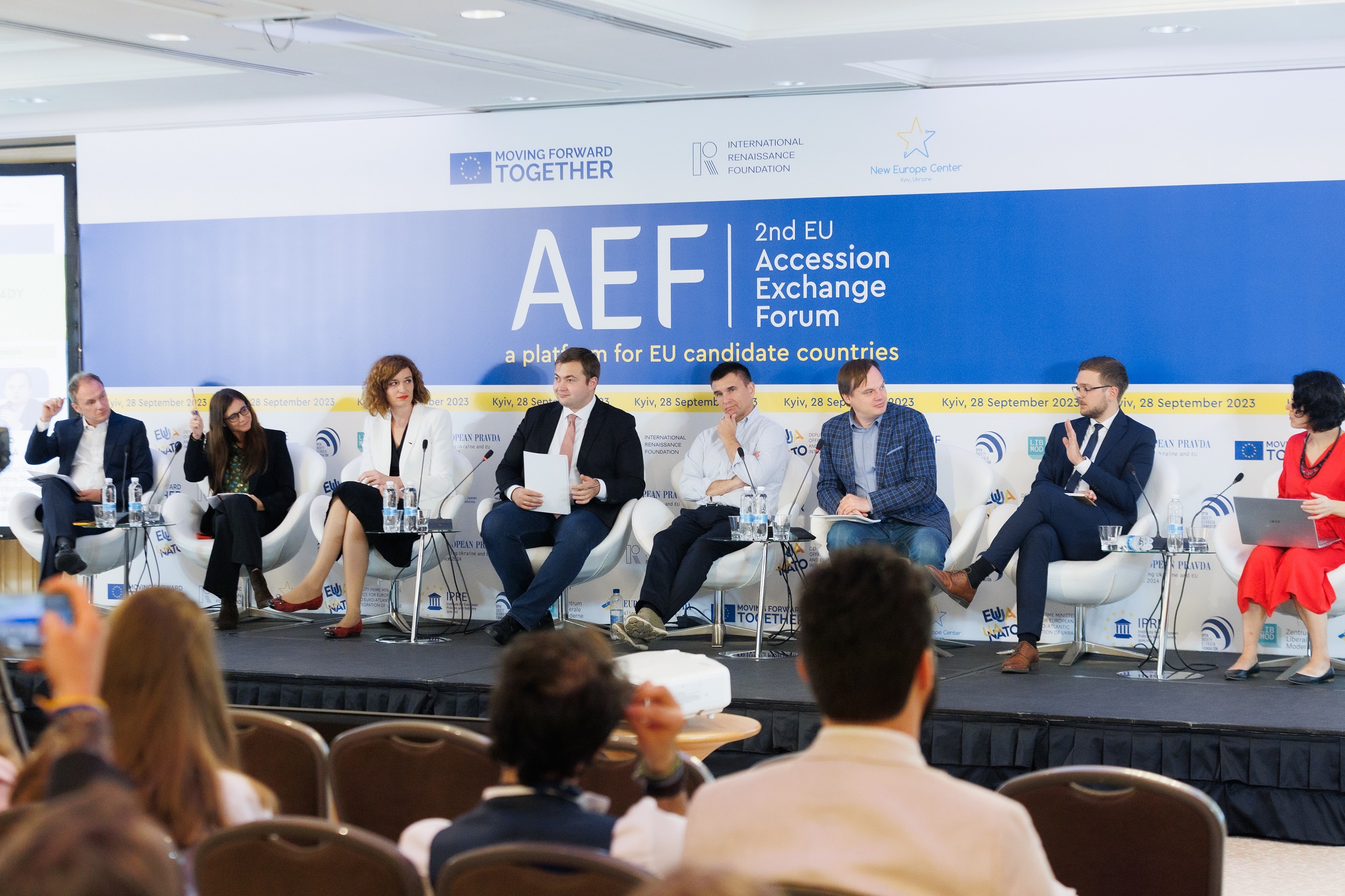
We bring to your attention the key messages of the speakers from the Session “How the EU needs to reform to be ready for new members?” of the 2nd EU Accession Exchange Forum.
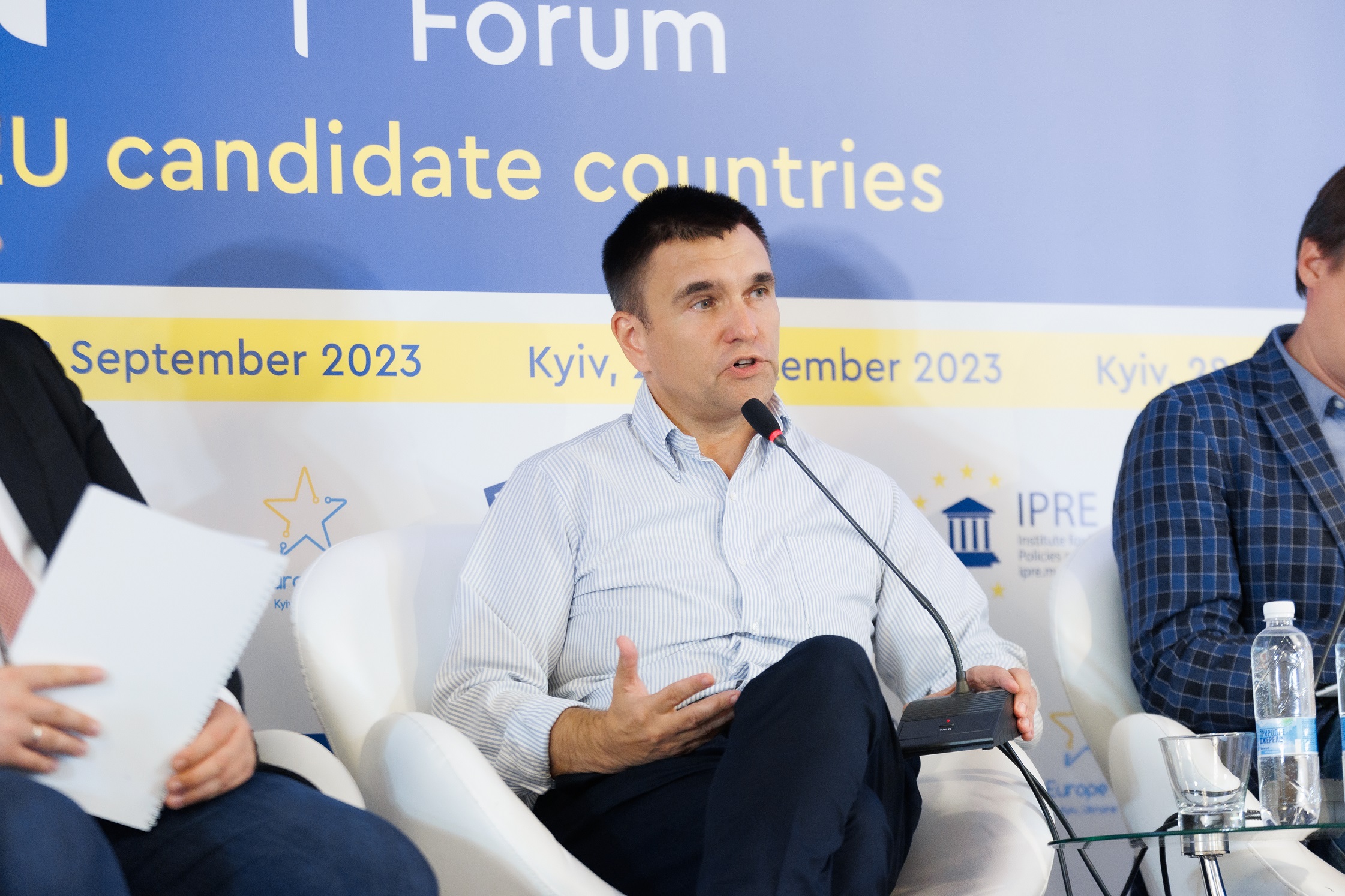
Pavlo Klimkin, former Minister of Foreign Affairs of Ukraine:
- I don’t believe that the EU needs to reform to deliver on new members. It’s a fundamentally wrong approach. The EU should understand what kind of European Union we need or probably don’t need in the future. We don’t need to discuss the reforms which are needed for EU enlargement, we need to understand what Europe is in the 21st century and what Europe is for.
- We live in a fundamentally different world, we live in the sense of security, we live in the sense of technology, basically in the narrow reality between the U.S. and China.
- The real point of how to make decisions on big issues in the 21st century, whether its enlargement or other geopolitical questions, is how to push Europe out of the narrative of being where we are now.
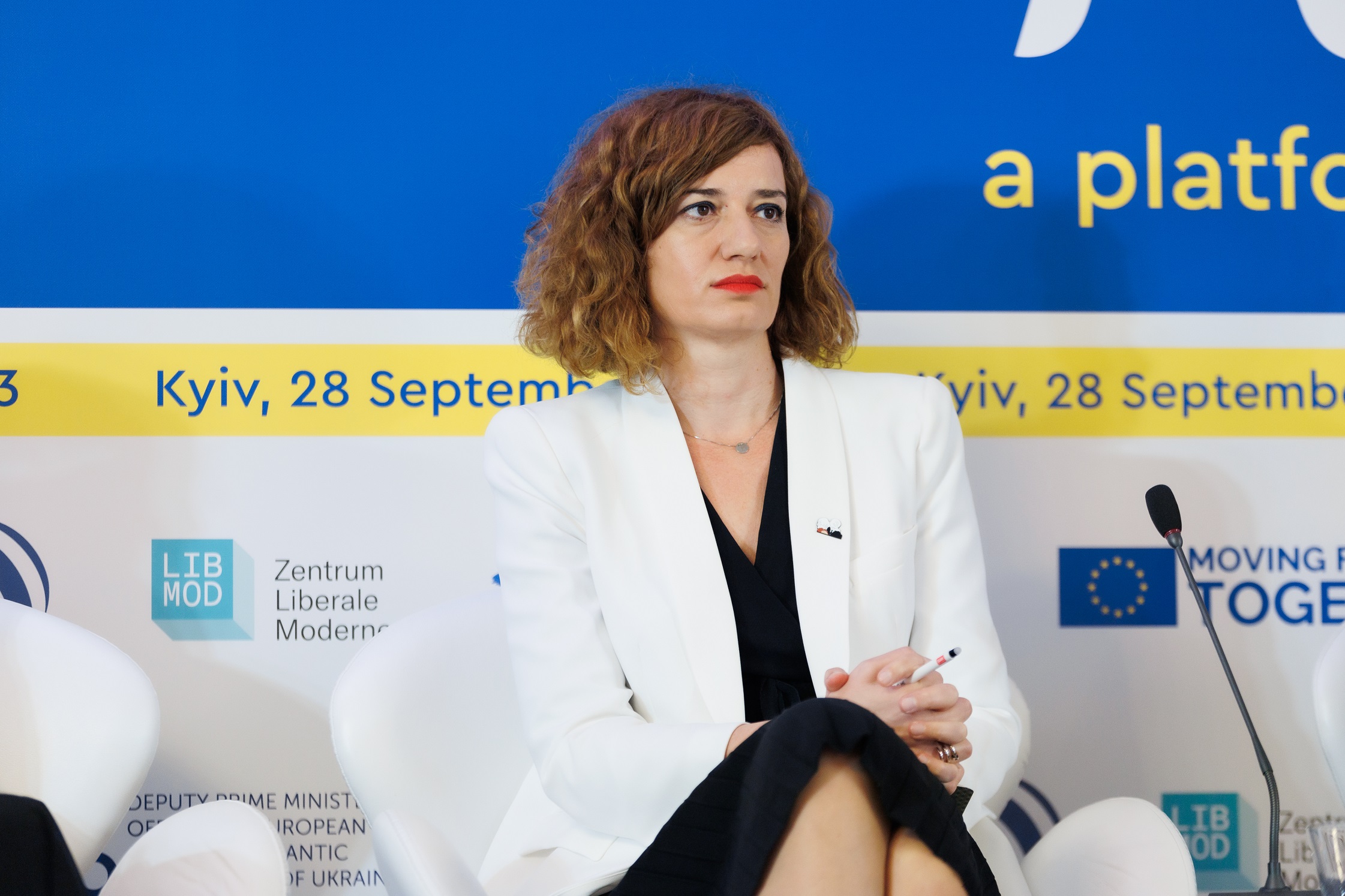
Jovana Marovic, former Deputy Prime Minister and Minister of European Affairs of Montenegro:
- The right question is not whether the EU needs to reform in order to be ready for the new members, the right question is whether the EU can be stronger. If it’s not getting bigger, if it’s not able to integrate new members, if it’s not able to safeguard and export democracy any more, it’s not possible for the EU to be stronger.
- The next question is about the date 2030. If the European integration process is merit-based it’s really impossible to have any kind of dates.
- There are five words about a better enlargement process: consistency, clarity, capacity, high level political attention and fundamentals. Consistency means when a candidate country achieves the next level of progress it should get some kind of benefits. Clarity means that the candidate needs to get a single certain signal from the EU, not the vast of different messages, plans etc. About capacity – the regional enlargement process is really unstoppable. And it’s important for the candidate states whether the political situation changes it would not reflect on negotiations with the negotiation structure. High level political attention means to have positive signals from different high levels. Fundamentals are the most important. All the EU reforming process should reflect in the rule of law.
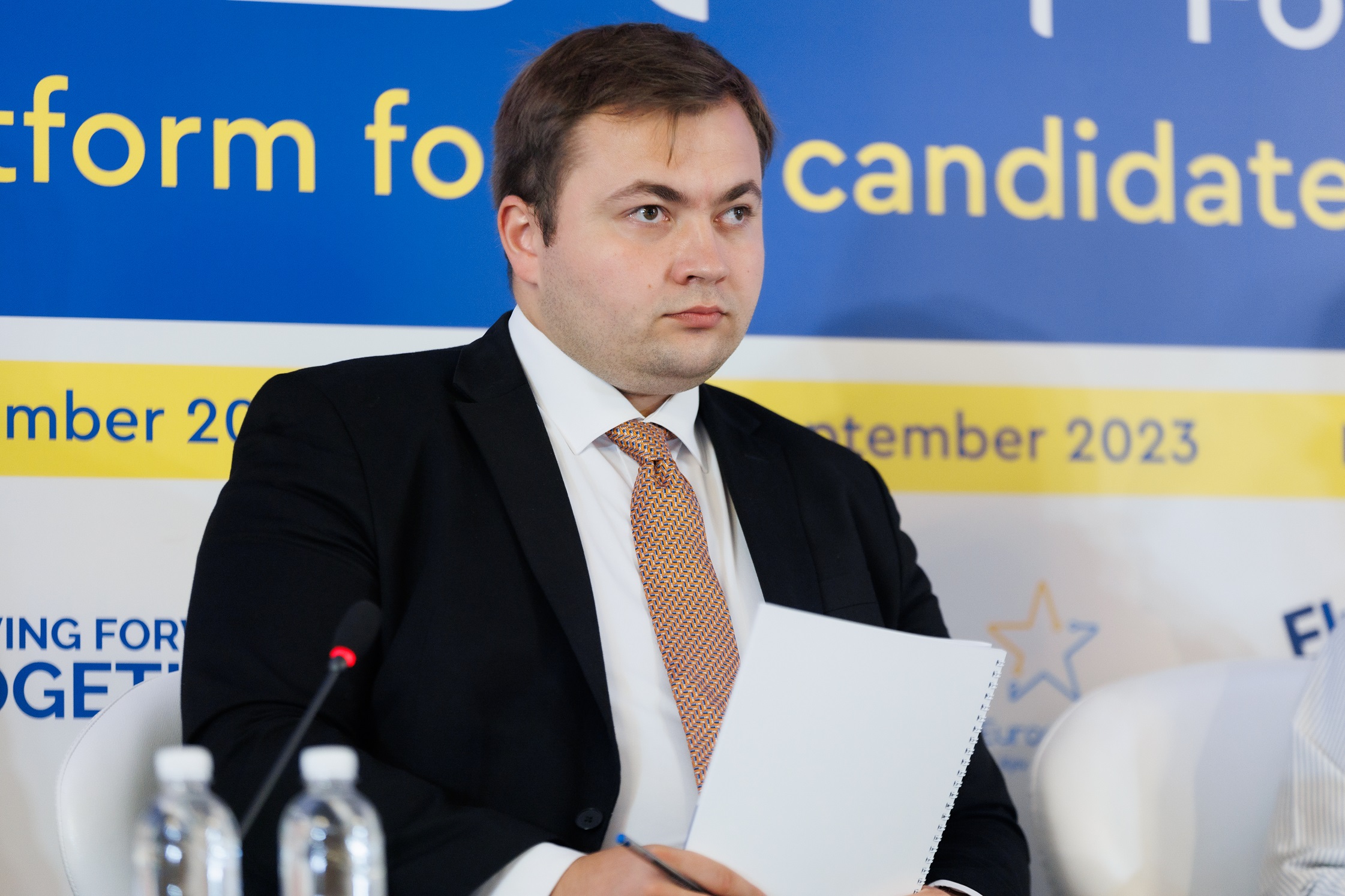
Adrian Balutel, Head of Office of the Moldovan president Maia Sandu:
- Here’s one definite fact for the countries which wait and are eager to become members of the European Union: every wave of the reforms of the EU made the EU stronger. And even the enlargements eventually made the EU stronger. So having a discussion on the reform of the EU inside the EU is a good thing because it signals the willingness to get stronger and overcome the challenges the EU is facing. And on the other hand it’s pinpointing the fact that enlargement is happening and cannot be stopped.
- The clarity in the EU enlargement is important because society which supports accession needs to know what are their steps for country`s membership. So there won’t be disappointment. As well, such clarity is important for policy makers.
- Accession itself carries significant transformative power. So the reformation during the accession process has a transformative effect. The EU has to be ready to fuel this transformation in the countries which are eager to become member states.
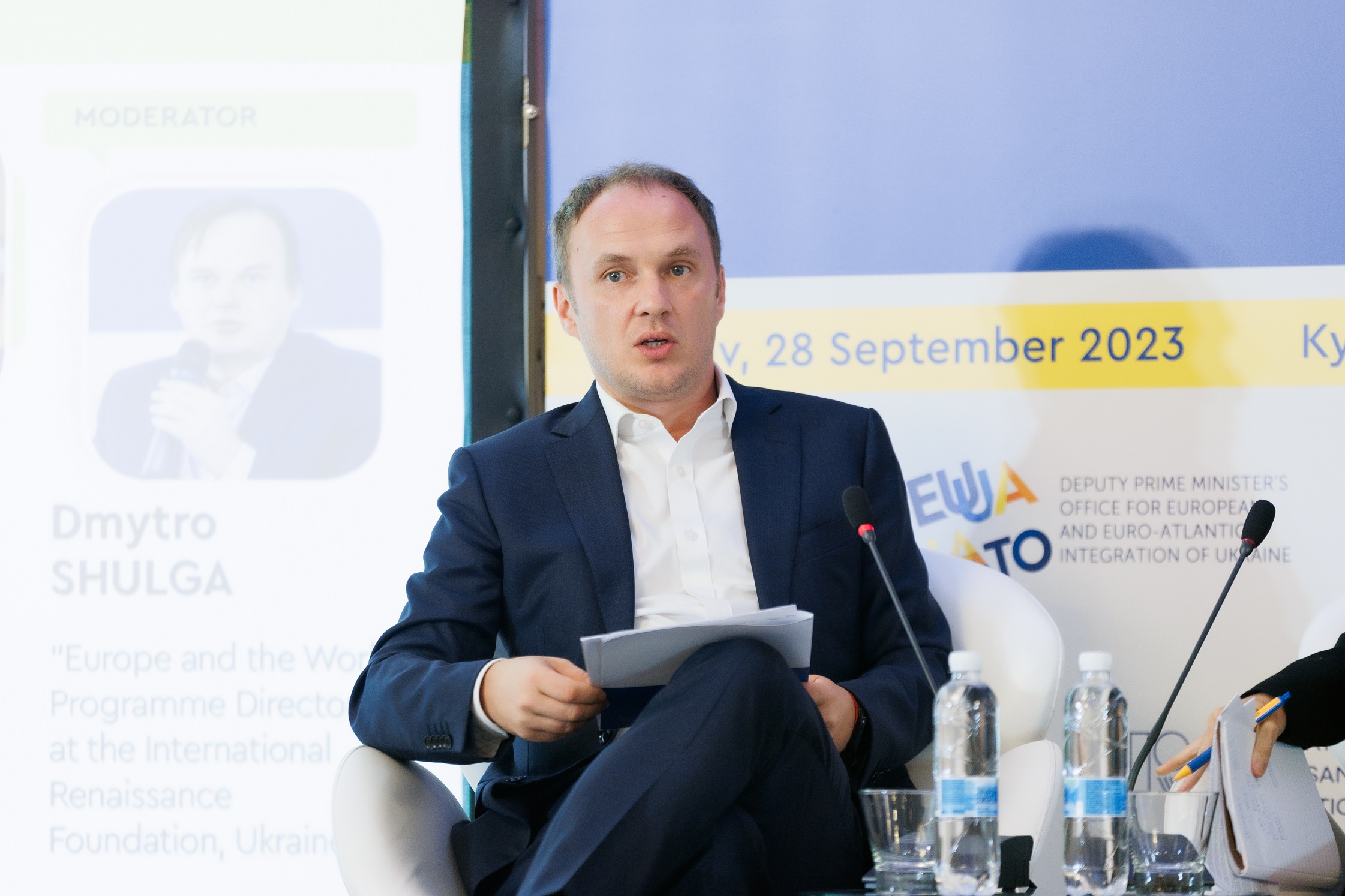
Petrit Selimi, former Minister of Foreign Affairs of Kosovo:
- War in Ukraine definitely and the strategic interests connected with the necessity to integrate Ukraine as soon as possible have opened the path and re-launched West Balkans’ enlargement. Now it is Ukraine’s and all the others’. I think it’s a fair assessment of where we are now.
- This winter might change the political landscape. In case of a hard season the society of European countries can push on their politicians and questions of enlargement may get backwards from the debate.
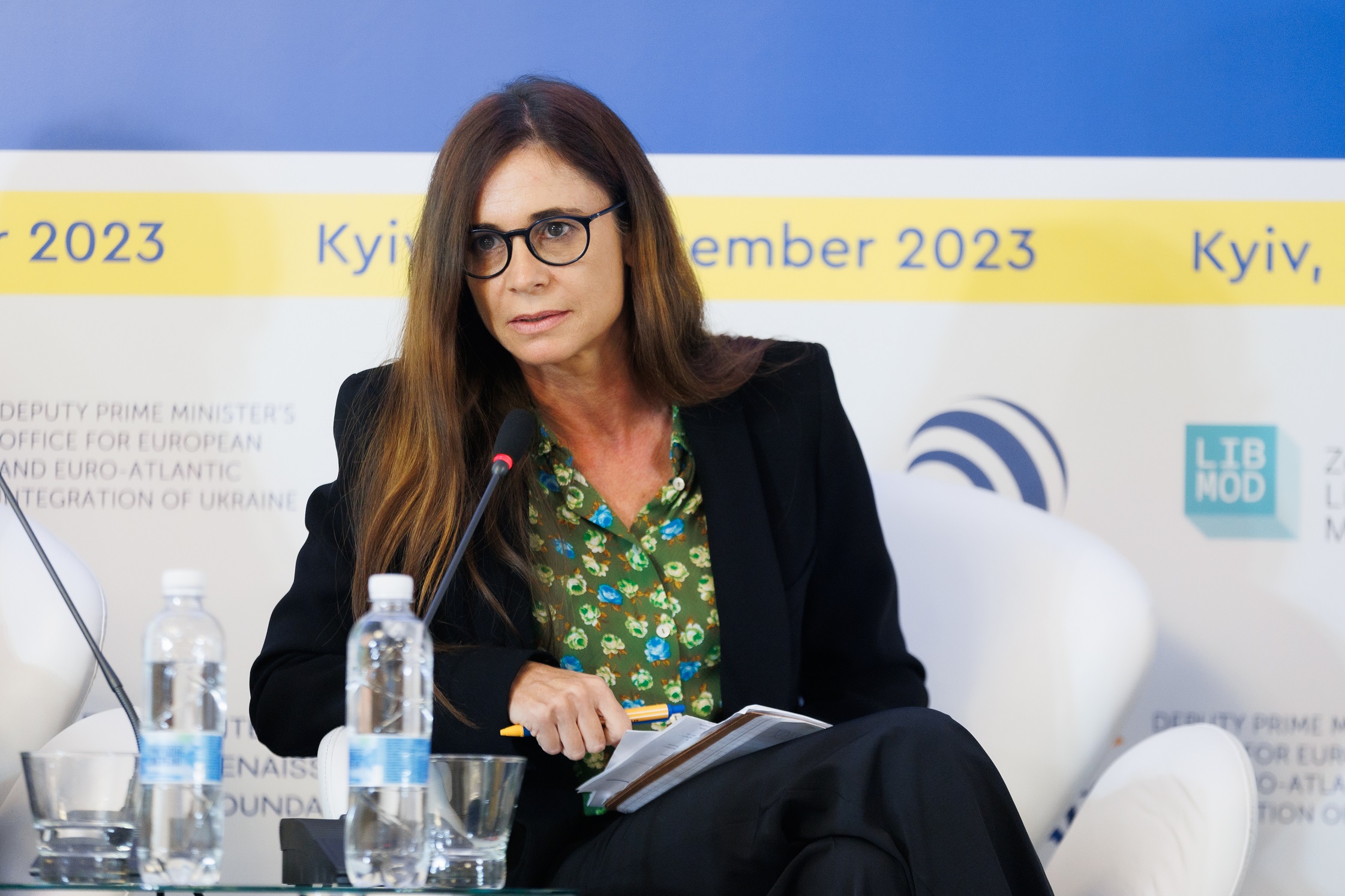
Paola Peduzzi, Deputy Editor, Il Foglio, Italy:
- I think that candidate states are more prepared and ready for enlargement than the European Union. In the past years we had the opposite thing – the shrinking, such as the Greece crisis and BREXIT. So we have to create a new, common narrative.
- To work and operate with 35 members the EU has to change the rules. We had some problems even with 27, so we need to change some processes. I do believe in democracy but I think it will not be easy to negotiate with 30-35 countries on the basis of unanimity.
- We have to change the narrative from Europe to candidate states. In Europe we think of enlargement as a favor to candidate countries. It’s not like a pie is getting bigger for all of us and all the countries are sharing the same pie. We stay together, we are not a functional family of course but we share the same resources. It is existential both to candidate states and Europe, but this idea is not established in our public discourse. So we have to put it.
- A very important concern is people’s consensus. In our history Europe and referendums are not a happy marriage. So when we put European question to people directly, usually the answer is “No”. So I think that it’s important to explain better what enlargement is for the countries that are already in the EU in order to build a consensus. Not just an institutional consensus but people’s consensus.
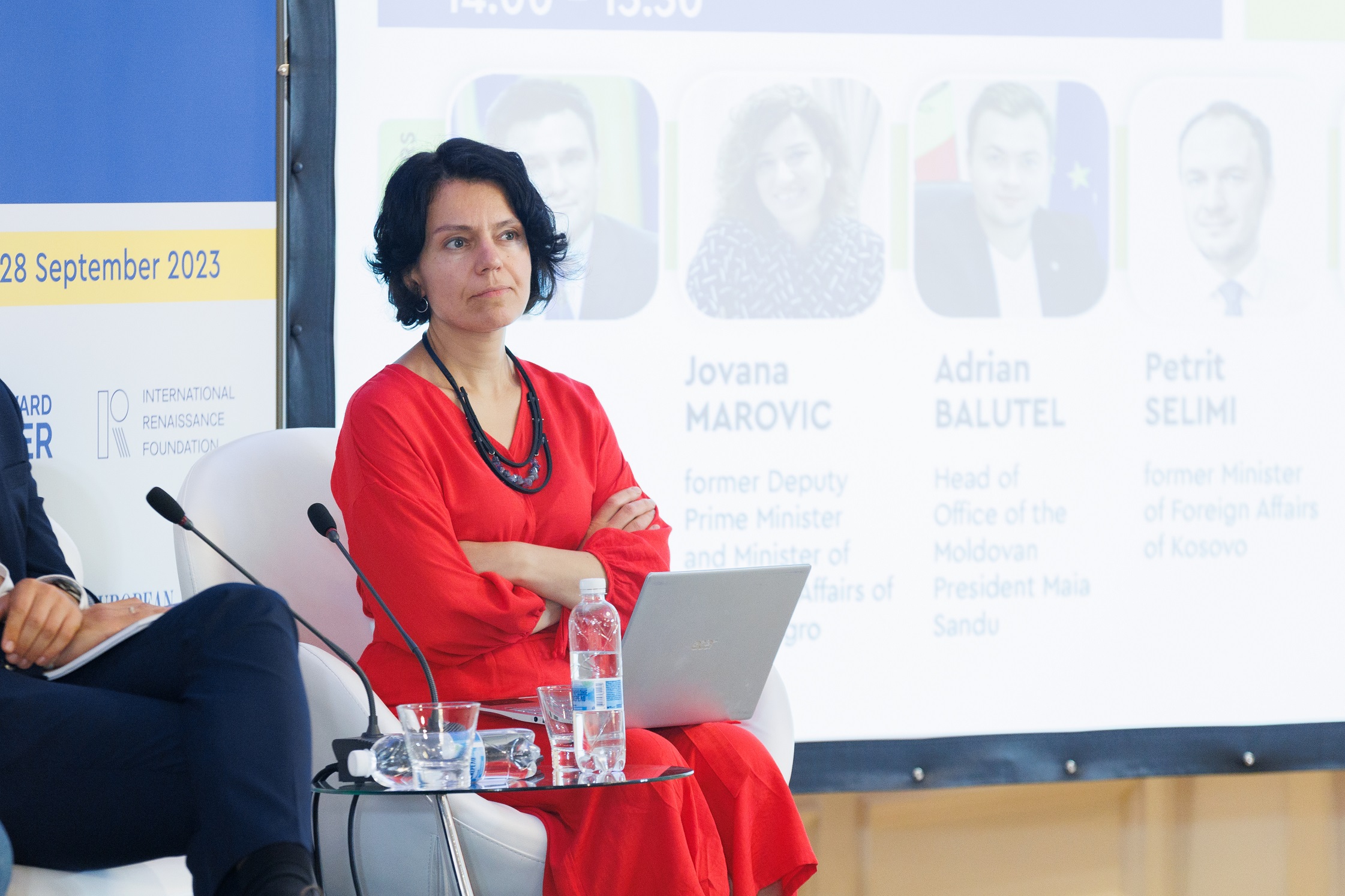
Iryna Solonenko, Senior Fellow at Centre for Liberal Modernity, Germany
- The idea of reforms is not new – it’s been discussed in the EU for some time before among expert community. I do think that some things are to be changed before candidates can become members. But I’d prefer doing it in such way that no treaty changes could take place, because it will be difficult to find consensus between the states.
- First thing that needs to be changed, it might be easier procedurally but not politically, is that current EU members give up their veto right for opening and closing accession chapters. Due to difficult neighboring countries it can be a problem. So it must be agreed. But still it is a matter of political will.
- In a long-term perspective there should be a qualified majority voting both in a foreign policy and on domestic issues. We must understand that new member states are very sensitive to give up their sovereignty. So it can be difficult to do but it is necessary to be changed before the enlargement takes place.
- A very important dimension is budget. The EU has a multi-annual budgetary system and a new budget will function from 2028 to 2034. It is in this frame of time that Ukraine and Moldova plan to join the EU. The talks on a new budget will start in 2024 when a new Parliament is elected and a new EU commission is formed. And this is where Ukraine can contribute. There are some calculations that when Ukraine joins the EU, Poland’s share in EU budget will reduce from 30% to 12% and Romania – from 18% to 7%. So, we can add something to the EU and not only take its resources.
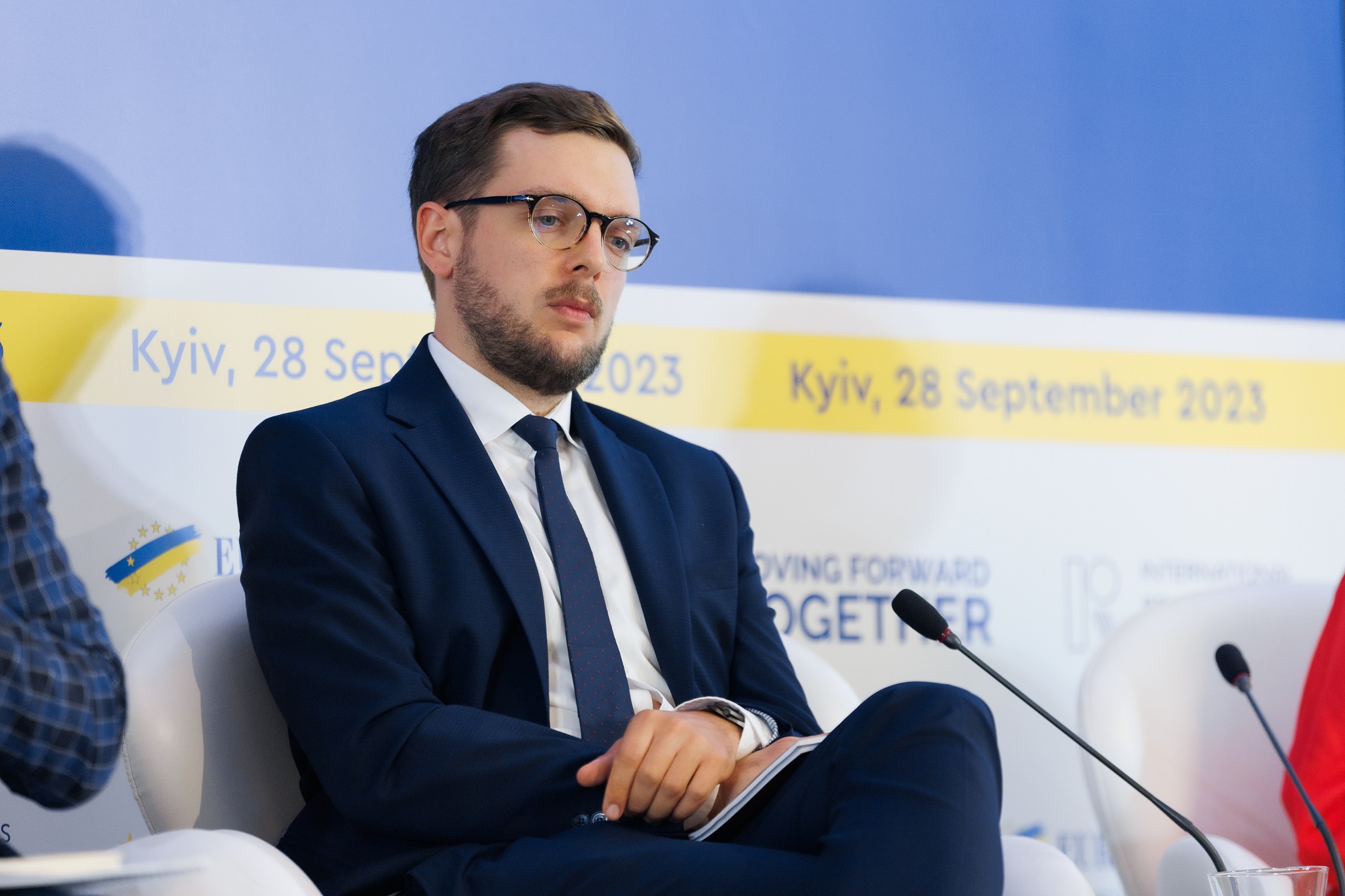
Jakub Jakobowski, Deputy Director at Center for Eastern Studies, Poland
- I think that the accession process has already started in the most convoluted way right after the full-scale invasion. There have been a lot of decisions in the EU and individual member states that effectively integrated Ukraine already: with the common market, free flow of services and people and virtually unified labor market.
- I want to draw attention to a very special form of accession discussion. Usually these things are talked about thoroughly beforehand. We are talking about transitional period, distortions and how accession affects internal constituencies and markets, and then proceed with the opening. Now it was the other way round but I think we should still reach this level of formal sustainable framework of cooperation.
- The momentum of for and from the EU is growing and it will certainly result in some changes. Some of them are really needed. But I think that the conditionality that accession will follow only after EU’s reforms is risky. It’s doable but risky.
- I think it is very important to imagine yourself already in the EU with some specific things you want to push through and ask yourself a question whether the reforms you see being proposed fit you or not.
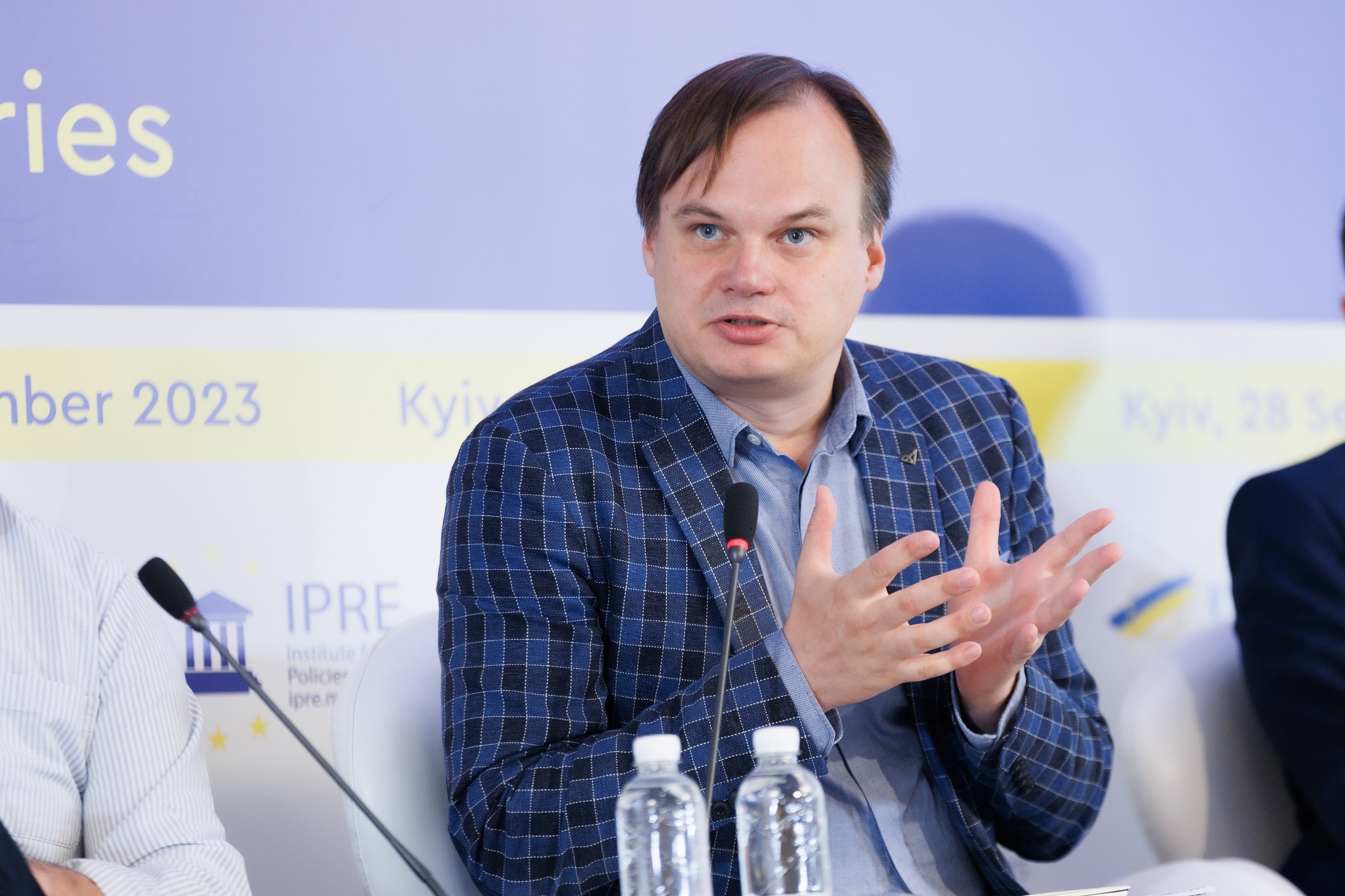
The Session was kindly moderated by Dmytro Shulga, “Europe and the World” Programme Director at the International Renaissance Foundation, Ukraine.
Video recording of the Forum is available here.
The EU Accession Exchange Forum is organized by the New Europe Center in partnership with the Office of the Deputy Prime Minister of European and Euro-Atlantic Integration of Ukraine, the International Renaissance Foundation, the Institute for European Policies and Reforms, the Soros Foundation in Georgia and the Center for Liberal Modernity, Germany. European Pravda became Forum media partner. The Accession Exchange Forum is taking place with EU support, within the EU-funded “European Renaissance of Ukraine” project implemented by the International Renaissance Foundation.





